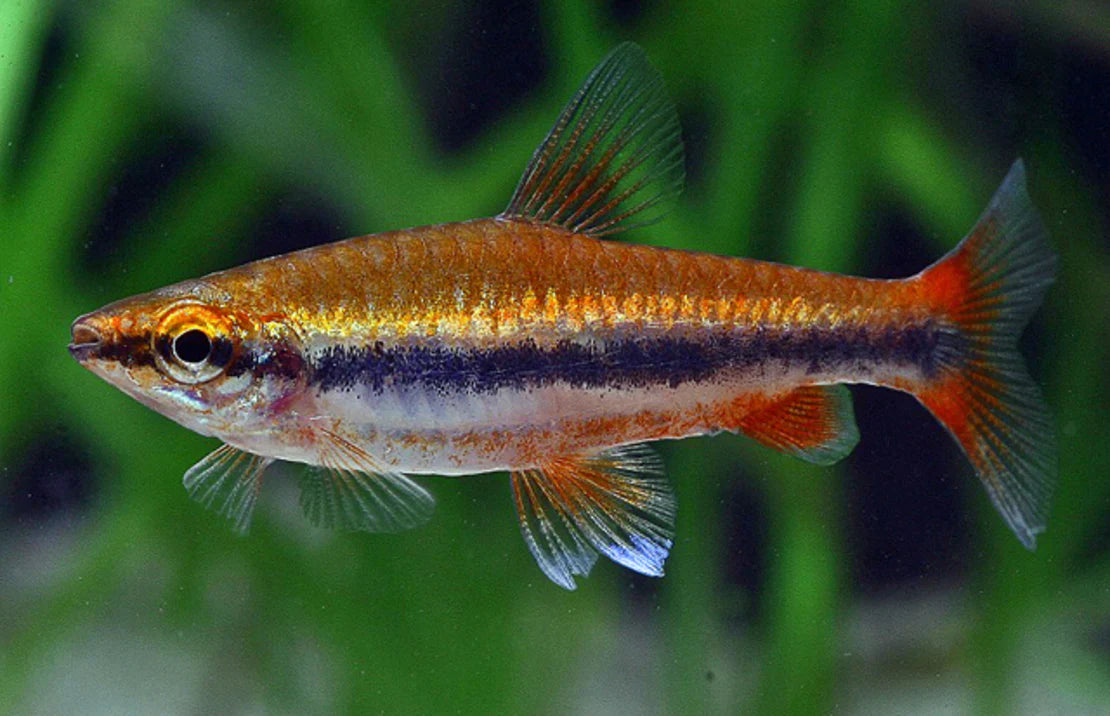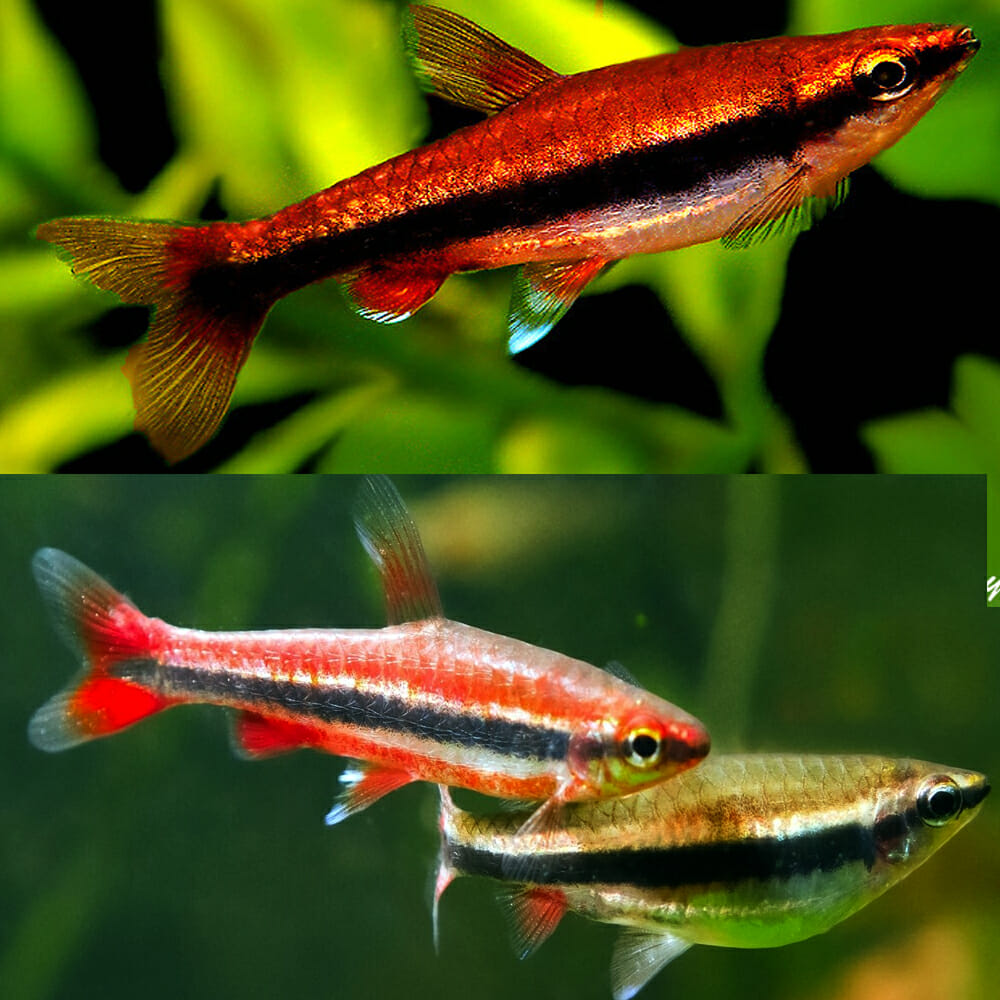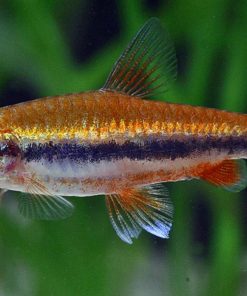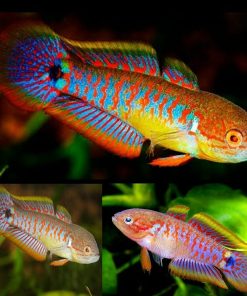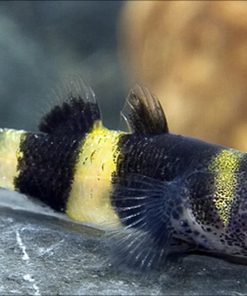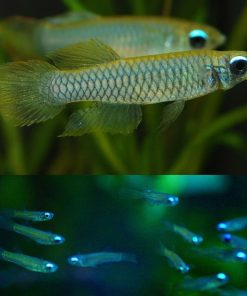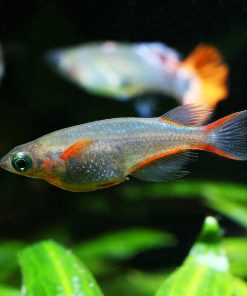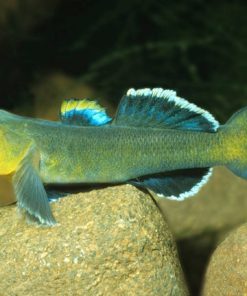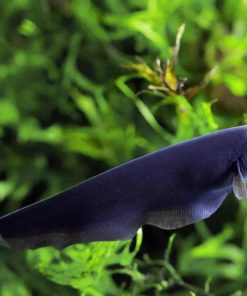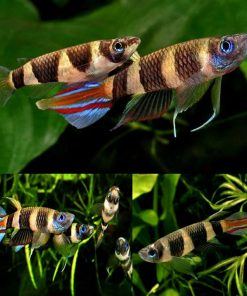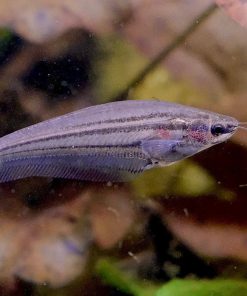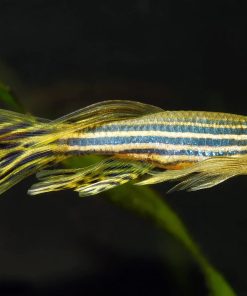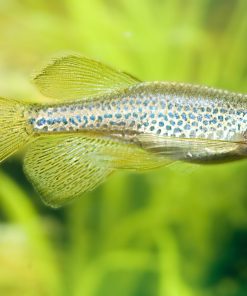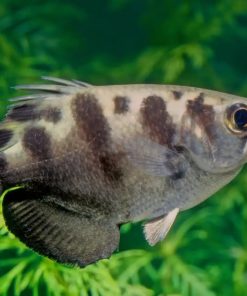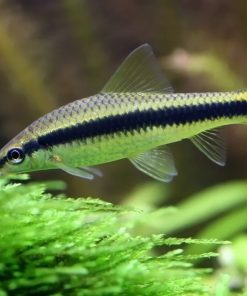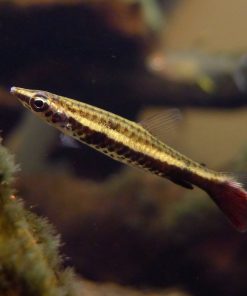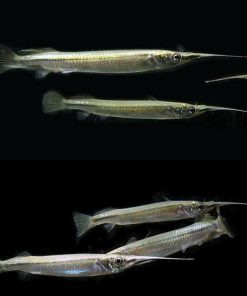Pencilfish Golden – Red Form Aquarium Industries
$ 9,95 $ 5,97
Temperature: 21 – 27 °C
pH: 5.0 – 8.0, though wild fish may do best towards the lower end of this range.
Hardness: 18 – 268 ppm; notes for wild fish as per pH.
Diet
A micropredator feeding on tiny invertebrates and other zooplankton in nature.In the aquarium it will accept dried foods of a suitable size but should also be offered daily meals of small live and frozen fare such as Artemia nauplii, Moina, grindal worm, etc.Relatively peaceful and will not compete well with very boisterous or much larger tankmates.In a community it’s best kept with similarly-sized, peaceful characids and smaller callichthyid or loricariid catfishes but sedate surface-dwellers such as hatchetfishes are best omitted, especially in smaller aquaria.It also makes an ideal dither fish for Apistogramma spp. and other dwarf cichlids since it tends to inhabit the middle-to-upper regions of the tank, and does not often predate fry.In a more general community set-up it can be combined with smaller rasboras, barbs, anabantoids, etc.Buy as many as possible, ideally 10 or more, as when kept in larger groups any aggression is spread between individuals plus the fish are bolder and exhibit more natural behaviour.
Fast Shipping and Professional Packaging
Because of our long-standing relationship with UPS FedEx DHL as well as other leading global carriers, we can offer a variety shipping options. Our warehouse staff is highly skilled and will wrap your goods in accordance with our exact and precise specifications. Your goods will go through a thorough inspection and be adequately secured before being shipped. We ship to thousands customers every day from all over the world. This demonstrates our dedication to become the biggest online retailer in the world. Both Europe as well as the USA have distribution and warehouse centers.
Note that orders containing more than one item are processed according to the particular item.
Before shipping, we will inspect the ordered items thoroughly. Today, the majority of orders will be delivered within 48 hours. The delivery time is estimated to be between three and seven days.
Returns
Due to the multiple parties involved, including the factory and the warehouse, we're unable to completely manage our stock. Therefore, the actual inventory could change at any time. It's possible that the stock may run out after your order has been processed.
Our policy is for 30 days. If you don't receive your product within 30 days, we are not able to issue a refund or an exchange.
Your item should be in its original packaging and in good condition. It must also not be used. The item must be returned in the original packaging.
Related products
Freshwater tropical fish
Freshwater tropical fish
Freshwater tropical fish
Freshwater tropical fish
Gudgeon – Peacock (Tateurndina ocellicauda) Aquarium Gallery Perth
Freshwater tropical fish
Hatchetfish – Silver (Gasteropelecus Sternicla) Bundarra Tropical Fish Farm
Freshwater tropical fish
Freshwater tropical fish
Pencilfish – Red (Nannostomus mortenthaleri) “Rare” Aquarium Gallery Perth
Freshwater tropical fish
Killifish – Steel Blue Gardneri (Aphyosemion gardneri) Aquarium Gallery Perth
Freshwater tropical fish
Goby Bumble Bee (brackish water) Bundarra Tropical Fish Farm
Freshwater tropical fish
Killifish – Normans Lampeye (Poropanchax normani) Bundarra Tropical Fish Farm
Freshwater tropical fish
Rice Fish – Neon Blue (Oryzias woworae) Bundarra Tropical Fish
Freshwater tropical fish
Freshwater tropical fish
Freshwater tropical fish
Killifish – Clown Panchax (Epiplatys annulatus) Aquarium Industries
Freshwater tropical fish
Freshwater tropical fish
Catfish – Poorman’s Glass (Kryptopterus macrocephalus) Bundarra Tropical Fish
Freshwater tropical fish
Danio – Zebra (Danio rerio) – Various Aquarium Gallery Perth
Freshwater tropical fish
Danio – Leopard (Danio rerio) – Various Bundarra Tropical Fish Farm
Freshwater tropical fish
Freshwater tropical fish
Freshwater tropical fish
Freshwater tropical fish
Flying Fox / Siamese Algae Eater (SAE) Bundarra Tropical Fish Farm
Freshwater tropical fish
Pencilfish – Rocket Tail (Nannostomus Eques) “Rare” Aquarium Industries
Freshwater tropical fish
Freshwater tropical fish
